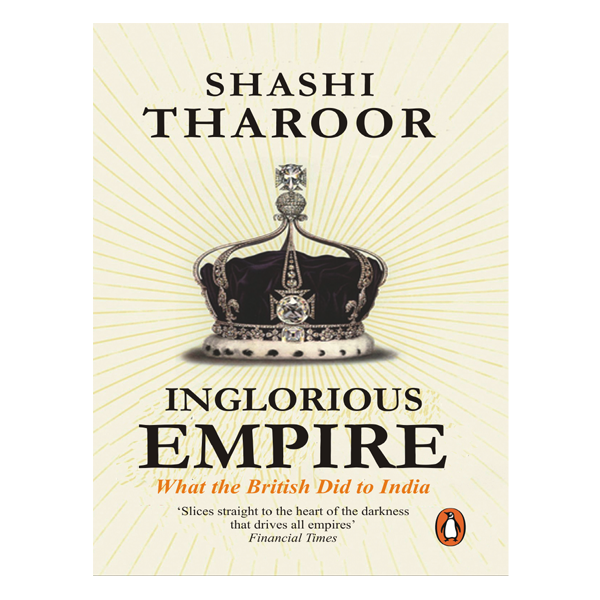

The book, much as his original speech had been at the Oxford Union, is an argument, and, like all political arguments, and indeed like much of the popular histories of the heralds of empire whom he attacks, gains its strength from the omission of almost everything that would damage his case. Tharoor makes no claim to impartiality or that he is writing history in this book, and indeed makes little claim that he is seeking to arrive at a balanced view. A year later, he published a much expanded version of his speech as Inglorious Empire: What the British Did to India (published elsewhere as Era of Darkness: The British Empire in India). Invited by the Oxford Union in 2015 to support the motion that “Britain Owes Reparations to Her Former Colonies”, Tharoor took the opportunity to redress the balance by listing what he believed were the ills the British had inflicted on his country. After he left the UN and entered Congress Party policies in New Delhi, holding the post Minister of State for External Affairs from 2009 to 2010, Tharoor would have watched Niall Ferguson advising a string of American Republican politicians and being named by Time magazine as one of the 100 most influential people in the world. Inglorious Empire: What the British Did to India, Shashi Tharoor (Hurst, March 2017 Aleph Book Company, October 2016)ĭr Shashi Tharoor suffered much of this in the western press and television during the twenty-nine years he served as a career bureaucrat at the United Nations in New York, particularly during George W Bush’s neocon years when Andrew Roberts was the toast of the administration.


To any Indian, Pakistani or Bangladeshi sensitive about his country’s past, all of this must have been a sore provocation.

The trend has been continued by works such as Niall Ferguson’s Empire: How Britain Made the Modern World, which, in 2003 told us how the British built the infrastructure of the globe Andrew Roberts’s A History of the English Speaking Peoples since 1900, which, in 2006, once more took up the white man’s burden and Nick Lloyd’s revisionist account in 2011 of the Amritsar massacre. These helped the Empire, at least in Britain, become a subject of nostalgia. Recent years have seen a spate of popular histories lauding the achievements of the Raj, kicked off in 1997 by Lawrence James’s Raj: the Making and Unmaking of British India. It is not surprising that writers in the Indian sub-continent should seek to redress the balance in accounts about what happened there when it was part of the British Empire.


 0 kommentar(er)
0 kommentar(er)
